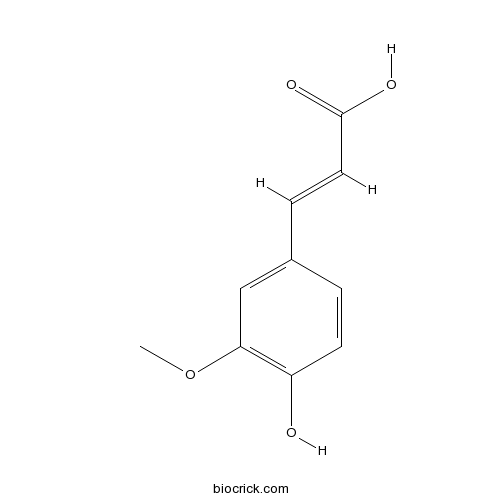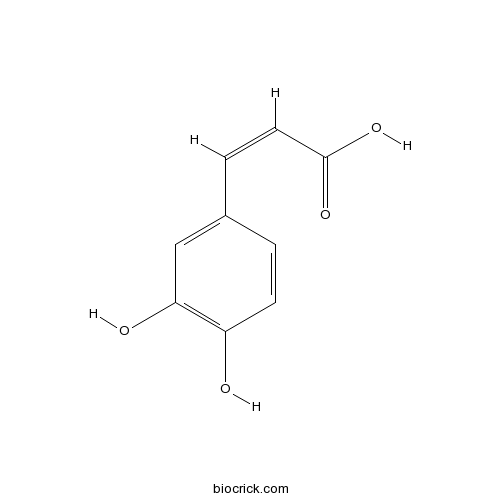Eupatorium adenophorum
Eupatorium adenophorum
1. The products in our compound library are selected from thousands of unique natural products; 2. It has the characteristics of diverse structure, diverse sources and wide coverage of activities; 3. Provide information on the activity of products from major journals, patents and research reports around the world, providing theoretical direction and research basis for further research and screening; 4. Free combination according to the type, source, target and disease of natural product; 5. The compound powder is placed in a covered tube and then discharged into a 10 x 10 cryostat; 6. Transport in ice pack or dry ice pack. Please store it at -20 °C as soon as possible after receiving the product, and use it as soon as possible after opening.
Natural products/compounds from Eupatorium adenophorum
- Cat.No. Product Name CAS Number COA
-
BCN5948
Ferulic acid1135-24-6
Instructions

-
BCN5979
Caffeic acid331-39-5
Instructions

Biochar improves maize growth by alleviation of nutrient stress in a moderately acidic low-input Nepalese soil.[Pubmed: 29996435]
We studied the role of biochar in improving soil fertility for maize production. The effects of biochar on the alleviation of three potential physical-chemical soil limitations for maize growth were investigated, i.e. water stress, nutrient stress and acid stress. Experiments involved soils with two dosages of biochar (0.5% and 2% w:w), as well as ones without biochar, in combination with four different dosages of NPK fertilizer, water and lime. Biochar was produced from the invasive shrubby weed Eupatorium adenophorum using flame curtain kilns. This is the first study to alleviate one by one the water stress, nutrient stress and acid stress in order to investigate the mechanisms of biochar effects on soil fertility. Biochar addition increased soil moisture, potassium (K) and plant available phosphorous (P-AL), which all showed significant positive relationship (p<0.001) with above ground biomass of maize. However, biochar was much more effective at abundant soil watering (+311% biomass) than at water-starved conditions (+67% biomass), indicating that biochar did increase soil moisture, but that this was not the main reason for the positive biomass growth effects. Biochar addition did have a stronger effect under nutrient-stressed conditions (+363%) than under abundant nutrient application (+132%). Biochar amendment increased soil pH, but liming and pH had no effect on maize dry biomass, so acidity stress alleviation was not the mechanism of biochar effects on soil fertility. In conclusion, the alleviation of nutrient stress was the probably the main factor contributing to the increased maize biomass production upon biochar addition to this moderately acidic Inceptisol.
The potential of biochar in improving drainage, aeration and maize yields in heavy clay soils.[Pubmed: 29750796]
Heavy clay soils are globally widespread but their poor drainage and poor aeration limit their use for agriculture. This study was designed to test the effect of the amendment of biochar (BC) from woody shrubs on drainage/saturated hydraulic conductivity (Ksat), soil aeration/air capacity, available water capacity and biomass and grain yields of maize. In a field experiment, BC from Gliricidia sepium was applied in planting basins or rip lines at 2.5% and 5% w/w in addition to a control without BC. The maize biomass and grain yields were higher in BC treated plots compared to control (p<0.05) during the 2012 and 2013 seasons. There was no significant difference in the yields between 2.5% and 5% BC treatments (e.g. grain yield were 6.6 and 8.1 t ha-1 in 2012 and 9.3 and 10.3 t ha-1 in 2013 compared to control with 4.2 and 6.7 t ha-1 in 2012 and 2013, respectively). Soil from the same field site was also mixed with a similar woody shrub BC from Eupatorium adenophorum in the laboratory at rates of 2.5%, 5% and 10% BC w/w and a control without BC. The mixtures were then incubated and subjected to two wet-dry cycles for two weeks. Core samples were taken from the incubated soil and tested for bulk density, Ksat and pF measurements. Total porosity and moisture at field capacity and wilting point were 72.3%, 43.7% and 23.7%, respectively, and not affected by BC amendment (p>0.05). In contrast, bulk density decreased linearly by 0.011±0.002 g cm-3 per percent BC added (p<0.001). Ksat and air capacity of the soil were 288 cm day-1 and 30.9%, respectively falling within the generally accepted optimal range. Both Ksat and air capacity followed a significant quadratic relation (p<0.05) upon BC addition, decreasing at low BC doses, reaching a minimum at 3-5% BC and increasing at higher doses. Results allowed a partial attribution of the yield increases to changes in soil physical properties such as changes in bulk density and not clearly to Ksat and air capacity.
[Exogenous NO application effectively alleviates the allelochemical stress on cucumber root border cells caused by Eupatorium adenophorum extracts.][Pubmed: 29692031]
None


